In Edo (old Tokyo, 1603-1868), being iki meant more than fashion —
it was a way of life: graceful, spontaneous, and lightly humorous.
People moved quickly, talked briefly, and lived with flair.
What Is “Iki” (いき / 粋)?
“Iki” means refined simplicity —
stylish without showing off, relaxed yet alive.
Its opposite, yabo (やぼ / 野暮), meant clumsy or dull.
In sounds,
iki feels like sa! (さっ!) — brisk and light.
Not dara dara (だらだら) — lazy or dragging.
That’s why Edo people valued quick gestures, witty talk, and light laughter.

Sound of the Edo Spirit
The rhythm of Edo was not slow or heavy, but light, clear, fast, and graceful —
like wind passing through a paper lantern.
Even their soba eating reflected that rhythm:
slurp, smile, and go — iki in every motion.
In a Word
Edo’s “iki” wasn’t about wealth — it was about attitude.
A balance of confidence and humility,
a life lived in rhythm with sound, timing, and wit.
A Day in the Life of an Edo Sophisticate — Feel the Iki Rhythm
Morning — The Crisp Sound of a New Day
The Edoite’s day begins with the first light of dawn.
A splash of cold well water — shaa! — wakes both the body and spirit.
Breakfast is simple: rice, miso soup, and pickles — nothing fancy, nothing wasted.
Outside, the street is still quiet except for the karan-koron of wooden geta clogs echoing on the stones.
Every step has rhythm, every motion has purpose.
To move swiftly, cleanly, and without fuss — that’s iki.
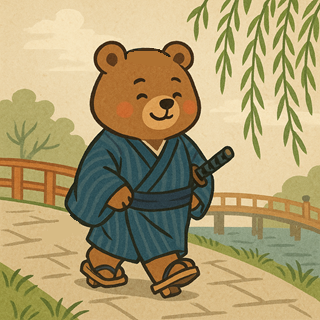
Midday — Work and Flavor in Perfect Tempo
At work, the Edoite values speed and precision.
No bragging, no waste of words — only the soft ton-ton of tools and the flow of effort.
When hunger comes, a noodle stall beckons.
“Soba, one plate!”
The dipping sauce glistens. The air fills with the faint aroma of buckwheat.
A quick dip, then — zuzu! — the noodles are slurped with grace.
Not too loud, not too shy, just natural.
The fragrance rises through the sound.
A sip of soba-yu (the hot noodle water) ends the ritual — quiet satisfaction in motion.
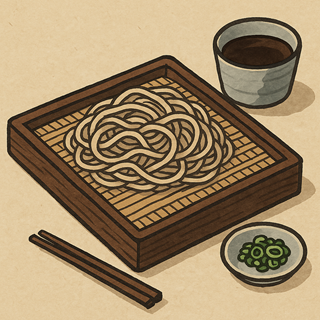


Evening — Steam, Laughter, and Light
After work, the Edoite stops by the public bath.
Steam curls up — moku moku — filling the air with warmth and chatter.
Inside, the pasha pasha of water and the hum of friendly talk weave a peaceful rhythm.
Refreshed, he might wander to a small tavern for a cup of sake and a grilled fish — jū jū from the charcoal.
No loud voices, just brief, witty exchanges and the gentle kira kira of lantern light.
To enjoy and leave lightly — that’s the art of being iki.
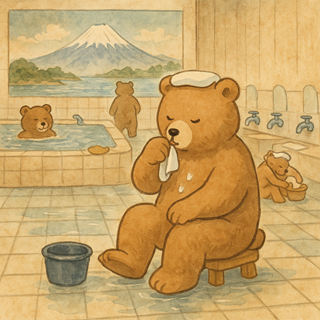
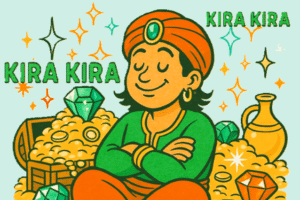

Night — The Quiet Echo of Completion
Back home, the Edoite lights a paper lantern — bon yari glow spreading softly through the room.
He tidies the day’s small debts, both in coin and in feeling,
so that nothing lingers into tomorrow.
Outside, the wind sighs through the bamboo — sara sara.
He smiles, listening to the city breathe.
The day ends not in silence, but in harmony — a still rhythm carried by sound and grace.
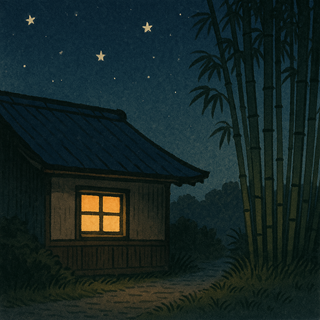

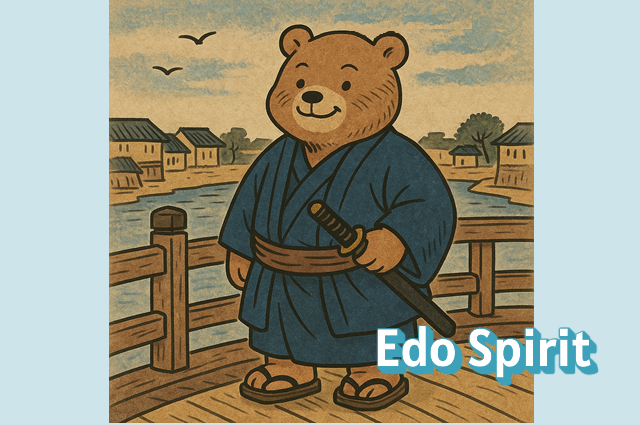
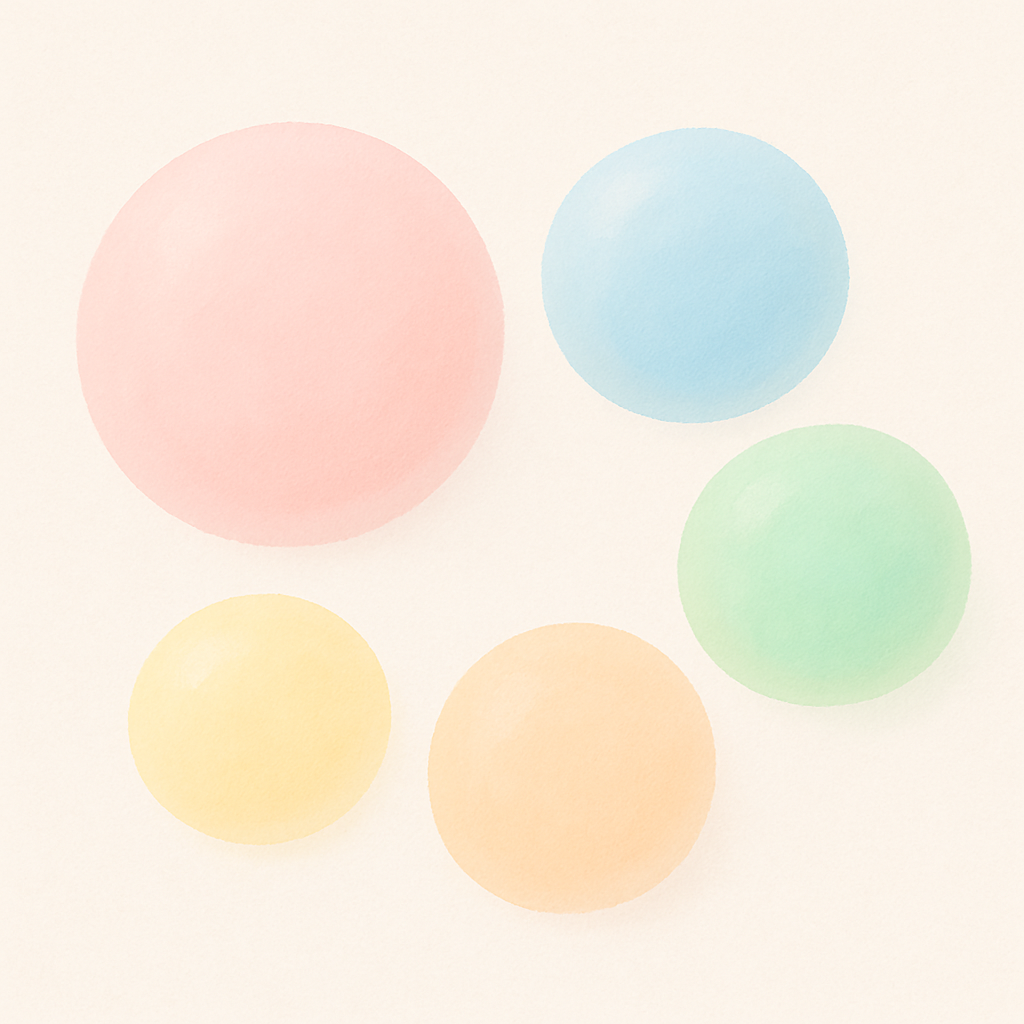


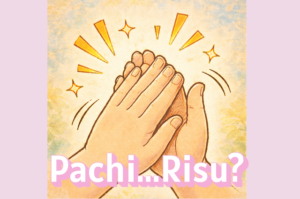

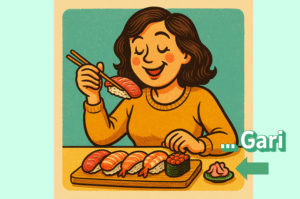

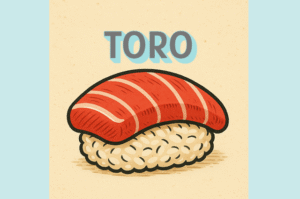
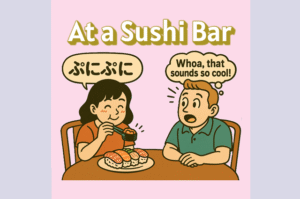

Comments